Archive for June, 2011

Juror admits contempt of court for Facebook contact
 (BBC): A juror, who contacted a defendant via Facebook, has admitted contempt of court in the first case of its kind in the UK involving the internet. London's High Court heard that Joanne Fraill, 40, contacted Jamie Sewart, 34, who had already been acquitted in a drugs trial in Manchester. However, the jury was still considering charges against other defendants and the contact led the judge to discharge the jury, and the case collapsed. The pair face up to two years in jail. The case, brought by the Attorney General, Dominic Grieve QC, is being heard by the Lord Chief Justice, Lord Judge, and two other judges.
(BBC): A juror, who contacted a defendant via Facebook, has admitted contempt of court in the first case of its kind in the UK involving the internet. London's High Court heard that Joanne Fraill, 40, contacted Jamie Sewart, 34, who had already been acquitted in a drugs trial in Manchester. However, the jury was still considering charges against other defendants and the contact led the judge to discharge the jury, and the case collapsed. The pair face up to two years in jail. The case, brought by the Attorney General, Dominic Grieve QC, is being heard by the Lord Chief Justice, Lord Judge, and two other judges.
Fraill admitted she had made online contact with Sewart and discussed the case with her while the jury's deliberations were continuing.
She also admitted revealing details of the jury's deliberations during that online conversation – contrary to Contempt of Court Act 1981 – and conducting internet research into a defendant whose case she was trying as a juror during the trial.

CIMA hosts regional talking shop for insurance sector
(CNS): Delegates from the region’s insurance industry are converging on the Cayman Islands this week for a talking shop dealing with the sector’s regulation. Hosted by the Cayman Islands Monetary Authority (CIMA) the week-long event includes a training workshop, conference and meetings. The Caribbean Association of Insurance Regulators (CAIR) and the Caribbean Regional Technical Assistance Centre (CARTAC) will stage the CAIR/CARTAC Insurance Supervision Workshop which is geared towards insurance supervisors from regulatory agencies that are members of CAIR or from CARTAC member countries.
Training which started Monday will focus on actuarial skills in order to orient participants to the roles of actuaries in insurance and expose them to basic actuarial concepts and tools.
Following the workshop, CARTAC will sponsor the CAIR Conference on Thursday 16 June. It will take place under the theme: “Possibility to Probability: Exploring Regulatory Challenges in Risk Management”. A range of topics relevant to the supervision of insurance companies will be covered, including rating, solvency, capital, reinsurance issues, and Caribbean actuarial standards.
Speakers and presenters include CAIR Chairman, Leon Anderson; CARTAC Program Coordinator, Arnold McIntyre; President of the Caribbean Actuarial Association, Cathy Lyn; CIMA executives, as well as other high level industry professionals. The week will end on Friday withseparate meetings of CAIR, regional regulators, and the Caribbean Actuarial Association Advisory Committee.
CAIR was established in 1994 to address the need to create regulation appropriate for the Caribbean insurance industry. CARTAC is a regional training resource established by the CARICOM Council of Ministers of Finance and Planning (COFAP) and based in Barbados. Since the start of its operations in 2001, it has been used by member countries for facilitating the development of skills in specialised industries, needed to meet the standards at both national and regional levels.
All events will be held at the Grand Cayman Marriott Beach Resort.

Arrest for theft on Cayman Brac
(CNS): Police have confirmed that a 41-year-old man was arrested for theft on Cayman Brac on 4 June. CNS understands that the arrest was made in regards to irregularities of Creek and Spot Bay Primary School PTA funds and that the person arrested is a member of the PTA executive committee. No charges have been brought against the suspect, but a police spokesperson said that the man is on police bail while Brac officers investigate the incident.

Many US state legislators lack college degrees
(New York Times): About one in four of the nearly 7,400 elected representatives across the country do not possess a four-year college degree, according to a report released Sunday evening by The Chronicle of Higher Education in Washington. That compares with 6 percent of members of Congress, and 72 percent of adults nationwide, said the report, which is based primarily on the officials’ self-reported biographical information. Arkansas has the least formally educated Statehouse, with 25 percent of its 135 legislators not having any college experience at all, compared with 8.7 percent of lawmakers nationwide.
It was followed by state legislatures in Montana (20 percent), Kansas (16 percent), South Dakota (16 percent) and Arizona (16 percent).
“I don’t think it’s imperative that you have a college degree to be effective,” said Mike Fletcher, a retired state trooper elected to the Arkansas Senate last year. “I think the most important thing is to have common sense.”
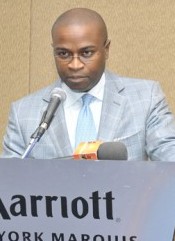
Caribbean needs to compete more for investment
 (CNS): The Caribbean was urged to compete for the global "wallet share" and step up the promotion of "its investment story," by vice president of investment at Goldman Sachs last week. Dave Dowrich the keynote speaker at the inaugural Invest Caribbean Power Forum in New York City on Thursday insisted that the Caribbean's investment "product" stacks up against most other regions of the world on several fronts, such as political stability, accessibility and ease of doing business. But "where we fall down is in selling and telling our investment story,” he said.
(CNS): The Caribbean was urged to compete for the global "wallet share" and step up the promotion of "its investment story," by vice president of investment at Goldman Sachs last week. Dave Dowrich the keynote speaker at the inaugural Invest Caribbean Power Forum in New York City on Thursday insisted that the Caribbean's investment "product" stacks up against most other regions of the world on several fronts, such as political stability, accessibility and ease of doing business. But "where we fall down is in selling and telling our investment story,” he said.
Comparing the Caribbean to private companies going public and the need to ensure that their story continues being told to their existing and future investor base, Dowrich said the Caribbean and its leaders must see investment in a similar vein.
"We therefore need to be sure that at every opportunity, our story is told on a consistent basis and told by credible and trust worthy folks such as our senior ministers, and then reinforced by our teams on the ground, who can 'talk the talk' of those that need to hear it," he added.
Dowrich was one of four speakers who addressed the along with Minister of Business Development & Tourism of Bermuda, Patrice Kimberly Minors; Martin Mohabeer, the Guyana-born Managing Director of Spackman Group and CEO of Spackman Capital and David Brillembourg, CEO of the Brilla Group.
Minors said Bermuda remains open to doing business while Brillembourg advised that attention be turned to Latin American pension funds as potential investors in the Caribbean region. Mohabeer announced the SEAF Caribbean Growth Fund, insisting that the Caribbean small business market is "tremendously underserved."
Among the over 120 attendees at the event were several money managers from the New York's investment community as well as top tourism officials from the Caribbean including the Chairman of the Caribbean Tourism Organization and Minister of Tourism and International Travel for St. Kitts/Nevis, Ricky Skerritt; Richard Sealy, Minister of Tourism, Barbados, Ed Bartlett, Minister of Tourism, Jamaica; Peter David, Minister of Tourism, Grenada; Commissioner of Tourism of St. Eustacius, Clyde Van Putten; Secretary General of the Caribbean Tourism Organization, Hugh Riley; Sylma Brown Bramble, director of CTO North America; Alec Sanguinetti, Director General of the Caribbean Hotel and Tourism Association, Josef Forstmayr, President, Caribbean Hotel and Tourism Association, and other top CTO officials as well as Caribbean directors of tourism.
The Cayman Islands was represented by the chief officer it he ministry of finance and tourism, Carson Ebanks.

FIFA corruption probe reaches Bahamas
(Tribune): An ex-FBI director hired to head FIFA's ongoing international corruption probe will be visiting the Bahamas next week, according to the international press. Louis Freeh has been tasked with investigating claims of bribery in connection with the world soccer governing body's recent presidential election. A series of interviews are scheduled to take place in the Bahamas beginning next week. This comes after two Bahamians blew the whistle on regional soccer officials who allegedly tried to offer a cash gift during an official meeting.
It is claimed in an affidavit that Fred Lunn, vice-president of the Bahamas Football Association, sent a text message to the association's president Anton Sealey immediately after he was urged to accept a large brown envelope filled with $40,000 cash from a Caribbean Football Union (CFU) official.
The affidavit is part of the evidence dossier harvested by FIFA's ethics committee to investigate claims put forth by a group of Caribbean football officials – led by Mr Sealey – who exposed an alleged attempt by a presidential candidate to bribe regional officials to support his bid.

Budget calls for $12m surplus
 (CNS): Although the premier has said no civil service jobs have been cut and only one new fee has been introduced in the 2011/12 budget, the latest government spending plans will end with cash left over. Under the theme of 'Maintaining fiscal discipline’, McKeeva Bush said there would be no new borrowing over the coming year and the 2011/12 budget called for a $12.1 million surplus. He also predicted that the economy would begin to show more signs of improvement this year and claimed that government had achieved a considerable feat by turning the country’s finances around.
(CNS): Although the premier has said no civil service jobs have been cut and only one new fee has been introduced in the 2011/12 budget, the latest government spending plans will end with cash left over. Under the theme of 'Maintaining fiscal discipline’, McKeeva Bush said there would be no new borrowing over the coming year and the 2011/12 budget called for a $12.1 million surplus. He also predicted that the economy would begin to show more signs of improvement this year and claimed that government had achieved a considerable feat by turning the country’s finances around.
“Operating revenues are expected to be CI$535.8 million in 2011/12,” he said. “Operating expenses are projected at CI$489.9 million … so that the surplus of central government, after deducting CI$33.8 million of financing costs, and expenses arising from foreign exchange transactions, is forecast to CI$12.1 million.”
In his budget address the premier claimed that so far his government’s economic policies were working and the country was back on the right track with an improvement in economic performance.
He said government earnings were more than expected last year as a result of more duties and property taxes being collected. Bush revealed that despite his instructions to the civil service to return a $15 million surplus for this fiscal year end 2010/2011, it was now expected to end with only around $4.5 milllion to spare, leaving him $10 million short for his recently revealed wish list.
However, despite not getting the $15 million surplus he had wanted, the year-end figures are still expected to be way better than predicted. Originally the 2010/11 budget had called for a deficit in excess of $31 milllion.
Bush predicted that government revenues would continue to improve as the economy grew and he promised that government would begin to address the public debt.
“The Government is not budgeting for any new borrowings in the fiscal year 2011/12,” he said. “This is consistent with the government’s fiscal strategy of financing the development of new infrastructure through operating cash flows, and utilisation of certain assets by undertaking Private Financing Initiatives (PFIs).”
He said this was “a major accomplishment” and a policy change from the past. “It demonstrates in a most profound way, one of the significant benefits of the maintenance of fiscal discipline practiced by this administration,” he said as he claimed credit for improving the state of government finances.
“The fiscal discipline has reduced the need for external borrowing and therefore reduced financing costs. As a result, the available resources can now be diverted to provide services which the public needs. Furthermore, the country’s debt burden will fall — thereby protecting the public’s purse.”
He said central government debt was expected to fall to CI$599.3 million by the end of next year from its current levels of CI$625.9 million.
Although he said there were no cuts in civil service jobs, he didn’t say how an expected CI$8 million deficit budget had been turned around in the space of a week to return the $12.1 million surplus.
Bush promised only one new fee, which relates to the introduction of regulations for certain types of funds previously unregulated.
“The government will introduce a single revenue measure during the course of the 2011/12 fiscal year: the hedge funds sector, certain 'master funds' will be regulated by the Cayman Islands Monetary Authority (CIMA) – just as they are regulated in other jurisdictions – and those funds will be required to pay a very modest fee of CI$1,500 per year,” he announced.
Government had received representations from leaders in the local financial services sector, he added, that the fee could be introduced without any adverse effect. He said $4.5 million from the fee would be used to provide a rebate to CUC on diesel duty, which would be passed on to residential consumers.
He also announced plans to examine the proposal for daylight service and that he would be seeking and to enlarge the local population, which last year’s census had revealed was on the decline.
“It is accordingly imperative that my government forges ahead with an immigration policy which seeks in a responsible way to increase the country’s core population with the right people. In the absence of such a policy, the revenue base is too concentrated on a limited few; and social entitlements become more expensive per head,” he stated.
Looking ahead, he said the anticipated domestic economic growth would also stimulate population growth. “In turn, the growth of the population serves to stimulate domestic demand. It is therefore expected that the pre-crisis population level in the Cayman Islands will be re-established by fiscal year 2013/14,” he added.
Bush also said that while government spending was restrained, the private sector would boost local economic growth. “For the next three fiscal years, it is anticipated that revival of domestic demand will rely mainly on household consumption and on investment in residential and non-residential buildings as various private-sector-led projects are commenced,” he said.
“Once underway, the government’s proposals for cruise-ship docking facilities, airport improvements, developments at the Turtle Farm, the start of developments in the Special Economic Zone and the construction of medical tourism facilities will positively impact the previously subdued growth outlook and, over the next three years, GDP should grow with a positive impact on the citizens and residents of the Cayman Islands and on government’s finances.”
He predicted, however, that weakness in demand for rented housing would have a dampening effect on inflation, with the rate in fiscal year 2011/12 forecasted at 2.1% barring major shocks in global prices.
Unemployment, he added, was expected to remain above six percent (6.1%) a marginal decline from the previous fiscal year. “It is expected that there will be a firm upturn in employment in 2012, on the expectation that the financial services industry, as well as the tourism industry, will show a broad-based expansion in the second half of 2011,” the premier predicted.
Bush noted that the country remained in challenging times but that his government had brought a new rigour of fiscal discipline.
Over the last two calendar years (2009 and 2010) the Cayman Islands’ economy contracted by approximately 11%, yet the unemployment rate increased by only 0.7 percentage points, he added. Bush said policy makers, were conscious of the ramifications of unemployment to the extent that it has to be treated as an ultimate indicator of the country’s economic performance.
He claimed that it was remarkable that government has had been able in a difficult economy to turnaround the Cayman’s fiscal condition.
“This augurs well for the government’s objective of creating a vibrant yet stable and sustainable economy: that is the single most important requirement for the creation of sustainable jobs,” he said.
See full budget statement below.

Cops recovered loaded gun in North Side
 (CNS): Police revealed on Monday morning that they had seized a loaded firearm from a house in the North Side area after a joint operation. Officers from the Bodden Town Police Station and the Uniform Support Group were involved in the raid which took place, police said, in the early hours of this morning, 13 June. Along with the seizure of the weapons a 31 year old Caymanian man was also arrested on suspicion of unlawful possession of a firearm. Police said that investigations connected with the operation were continuing and did not reveal what type of gun had been found or if the weapons was connected to any of the recent armed robberies or other crimes.
(CNS): Police revealed on Monday morning that they had seized a loaded firearm from a house in the North Side area after a joint operation. Officers from the Bodden Town Police Station and the Uniform Support Group were involved in the raid which took place, police said, in the early hours of this morning, 13 June. Along with the seizure of the weapons a 31 year old Caymanian man was also arrested on suspicion of unlawful possession of a firearm. Police said that investigations connected with the operation were continuing and did not reveal what type of gun had been found or if the weapons was connected to any of the recent armed robberies or other crimes.
This latest seizure comes in the wake of the recovery of two handguns at a house in George Town but police have still not revealed if any arrest were made during that operation which took place on Saturday 4 June
If anyone would like to report any criminal activities you can call the George Town Police Station at 949 422 or the anonymous Crime Stoppers number 800-8477 (TIPS).
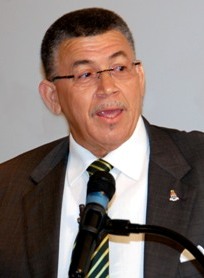
Mac angered by UK influence
 (CNS): The premier made it very clear Friday that he did not enjoy taking orders from a desk clerk in London, when he finished his 2011/12 budget presentation Friday. Pointing the finger at the opposition for its spending on infrastructure during the last administration, McKeeva Bush revealed his frustrations over having the country’s finances so closely managed by the FCO. After finishing his address around 9:30pm and explaining why it was so late and why the documents weren’t ready to present to the Legislative Assembly, the premier said the budget had to be readjusted on several occasions. Government was still discussing the financial plan with the UK at noon Friday he revealed, adding that civil servants were still working on the documents until 5pm that evening.
(CNS): The premier made it very clear Friday that he did not enjoy taking orders from a desk clerk in London, when he finished his 2011/12 budget presentation Friday. Pointing the finger at the opposition for its spending on infrastructure during the last administration, McKeeva Bush revealed his frustrations over having the country’s finances so closely managed by the FCO. After finishing his address around 9:30pm and explaining why it was so late and why the documents weren’t ready to present to the Legislative Assembly, the premier said the budget had to be readjusted on several occasions. Government was still discussing the financial plan with the UK at noon Friday he revealed, adding that civil servants were still working on the documents until 5pm that evening.
“Let me tell one and all in this House, I am 56 years old and it is really, really tough for me to be directed by a desk clerk thousands of miles away,” the premier said after his address, which lasted around two and half hours. “I don’t like to be pushed, I don’t, but that’s the situation I find myself … talkto a desk clerk, this Cayman Islands being told what to do,” he said as he shouted and berated the opposition.
The opposition leader, Alden McLaughlin, had asked for an undertaking that the missing documents would be delivered in a timely fashion to the rest of the members of the House in order that they may present their response when the parliament reconvenes at 2:30pm Wednesday afternoon.
The premier apologised for the many changes to the planned dates for delivering his address but told his legislative colleagues sitting in the parliament Friday night, “Una all better understand that if we didn’t have to go with cap in hand to the FCO to get permission to present a budget we would have long ago presented it.”
He said the FCO had the ability to tell the country what to do when it came to managing its finances because of the opposition, which was something he was very uncomfortable about because government had not complied with the Public Management and Finance Law and needed to borrow money, giving the UK the right to approve or disapprove the budget, which arose from a huge capital spending programme.
“Now you ask why I’m late,” he told the opposition when the leader of the PPM asked when the documents would be ready for everyone to see. “The demands were to cut civil service … and people didn’t want to believe the FCO wanted me to introduce income tax.”
He claimed again that he had saved the islands from direct taxation and said that he had refused to cut civil service salaries. “I don’t believe that I have the power to make those cuts. I will not cut willy-nilly,” he said. Bush added that if the civil service management comes to him saying how much they need for service he added that neither he nor any minister could just simply cut that amount as they could be cutting essential services. “That is not my duty, I don’t have administrative responsibility over civil servant,” Bush said as he added that the civil service had worked with government to cut costs.
However, despite the cuts the foreign office did not agree, Bush told the LA as he said they asked for more and more cuts. He said it was because the opposition spent “too much of what they didn’t have” when in office and would not listen to the civil servants.
“You Mr Leader of the Opposition wouldn’t listen!” he yelled at McLaughlin on the opposition bench, as he added that his government was returning to fiscal prudence and would make no more borrowing in this budget. He said he wanted to return to the normal situation where the UK had no influence over Cayman government’s annual budget.
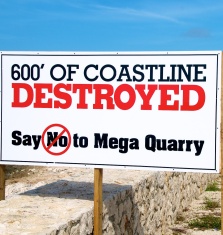
‘No’ campaign steps up
 (CNS): Billboards opposing the proposal by Joseph Imparato to develop a sea port, or as those against the project believe it to be ‘the mega quarry’, have been posted on the crown land which will be ripped out if the development is allowed to go ahead. The MLAs from the districts most impacted by the potential quarry have joined forces with Save Cayman, local environmentalist, dive operators, property owners, the wider public and most recently local quarry owners to spearhead an all out opposition to the proposal which has a wide range of potential negative social-economic impacts, but above all poses one of the biggest ever environmental threats to the district of East End. (Photos Steve Broadbelt)
(CNS): Billboards opposing the proposal by Joseph Imparato to develop a sea port, or as those against the project believe it to be ‘the mega quarry’, have been posted on the crown land which will be ripped out if the development is allowed to go ahead. The MLAs from the districts most impacted by the potential quarry have joined forces with Save Cayman, local environmentalist, dive operators, property owners, the wider public and most recently local quarry owners to spearhead an all out opposition to the proposal which has a wide range of potential negative social-economic impacts, but above all poses one of the biggest ever environmental threats to the district of East End. (Photos Steve Broadbelt)
A consortium of local quarry owners has now also officially thrown its weight behind the ‘no campaign’ and have released an official statement noting a number of problems with the potential development, not least the threat to their livelihoods and the developer’s circumvention of the normal rules and regulations surrounding quarry operations.
Not normally known for their environmental credentials, the quarry operators are joining an opposition to the project that includes divers, people concerned about the terrestrial impact, the loss of the view, the threat to the water lens, flooding during bad weather and the destruction of the quality of life in East End.
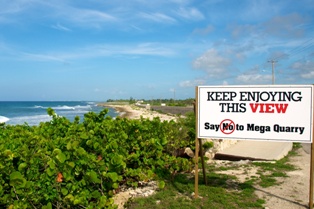 The quarry operators find themselves on the same side as the environmentalists on this occasion and have committed to supporting Arden McLean, the PPM member for East End, and Ezzard Miller, the independent member for North Side, who have commissioned and erected the new billboards on crown land.
The quarry operators find themselves on the same side as the environmentalists on this occasion and have committed to supporting Arden McLean, the PPM member for East End, and Ezzard Miller, the independent member for North Side, who have commissioned and erected the new billboards on crown land.
The rules surrounding the quarrying business are stringent and the operators say they are there to prevent over-quarrying on the island and potential environmental threats such as those posed to the water lens, which they say Imparato’s project would be allowed to bypass.
In a statement released at the weekend, the quarry owners said they were presenting a united front against the project and would oppose it it whatever ways they could. “We are wholeheartedly against this project, which is not good for our country,” they stated.
Following in meeting in East End on Thursday evening where Imparato and the authors of the environmental impact assessment came face to face with significant opposition to the project from across the community, the developer said he still intended to submit his proposals to government and wanted to begin as soon as possible.
Whether or not the developer actually intends to complete a fully fledged commercial sea port, which will include a facility for the Cayman Islands Port Authority, a transshipment dock, oil and gas storage and home porting for cruise ships, as well as a mega yacht marine, remains to be seen but the excavation to dig out the basin and the channel will take as at least five years.
The current concern is that the real intention of the developer is only to access the marl, which is believed to be worth hundreds of millions of dollars. Proposing to build a port, however, would enable him to operate this mega quarry for the first five years of the project outside of normal controls.
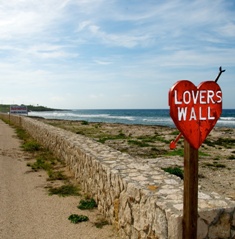 “The developer has been patently misleading with his statements and declarations,” the quarry owners said in the statement. "It is the view of the quarry owners that this project is nothing more than a thinly disguised, massive quarry, which possess the potential to wipe out most, if not all of their business by employing predatory pricing in the aggregate market in the short term.”
“The developer has been patently misleading with his statements and declarations,” the quarry owners said in the statement. "It is the view of the quarry owners that this project is nothing more than a thinly disguised, massive quarry, which possess the potential to wipe out most, if not all of their business by employing predatory pricing in the aggregate market in the short term.”
At present local quarry owners operate under a government-approved aggregate policy which was implemented by the CPA in 2004. However, the quarry owner say this developer is being allowed to “circumvent the usual stringent planning permission process entirely by passing off his project as a port, when in fact he intends to operate a quarry to extract some 15 million cubic yards of aggregate.”
Aside from gaining an unfair competitive advantage, the quarry owners said that this exemption has far greater consequences than spoiling their business. “It is a matter of grave concern that the government of a country would not only grant the right to destroy local businesses but would at the same time license a private developer to entirely avoid the legal process that governs all other citizens in the country,” they stated.
The current aggregate policy is designed to restrict quarries until the island’s supply of quarry material is less than five years reserve, which the operators say is decades away. “Given the economic downturn in recent years and the consequent recession in the construction industry, estimates suggest that there is currently approximately 50 years of aggregate reserves in existing quarries.” The estimate includes proposed government infrastructure works such as the cruise dock, airport and roads.
“We have no shortage of quarry material,” emphasised Burnadette Bodden, who operates KP’s Heavy Equipment, one of the eight companies comprising the consortium. She and the others said quarry operators have seen a reduction in the price of their product because of the slowdown in construction and the fall in demand for aggregate.
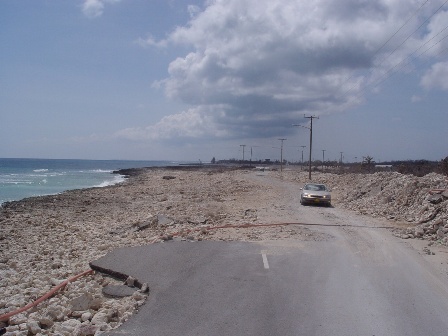 Bodden is also an East End landowner who has concerns regarding the very real treat to the water lens. Current operating regulations stipulate that no excavation should take place within a two-mile radius of the aquifer but the seaport proposal is within 2,400 feet. “That is actually less than half a mile and it is clear that the East End Seaport proposal, by its own admission is dangerous to the fresh water lens in the area,” Bodden added.
Bodden is also an East End landowner who has concerns regarding the very real treat to the water lens. Current operating regulations stipulate that no excavation should take place within a two-mile radius of the aquifer but the seaport proposal is within 2,400 feet. “That is actually less than half a mile and it is clear that the East End Seaport proposal, by its own admission is dangerous to the fresh water lens in the area,” Bodden added.
(Photo: Even with the natural bluff protection the road was destroyed in the wake of Hurrciane Ivan as this picture, taken around one week after the storm, shows.)
The quarry owners are warning the public that the authors of the EIA did not speak with local Water Authority or environmental experts during their assessment, although the DoE had input on the terms of reference. The quarry owners warn that the claims by the authors and the suggested mitigation are inaccurate.
With no justification for the seaport and the mega quarry, the consortium said the project represents unfair competition and threatens to drive local quarry owners out of business. Between them the quarry operators employ 321 people directly and another 118 independent truckers and their families are also beneficiaries of the sector, while this project, which is circumventing the usual laws and processes, will during the dredging and excavation period only employ 45 people.
The extent to which the developer would be obligated to complete the project has not been established and it is understood that he will not be required to put up any financial bonds to underscore the verbal commitment. He has admitted the development of the cargo facility, which will be given to the Port Authority, will be in the hands of government and therefore the public purse. All of the other elements of the facility will be joint venture partnerships but so far no investors have signed up to be part of the project. Although the developer has said he will be responsible for the supporting ring road around the facility, he will not be responsible for the east-west arterial link which would be required to support the development if it were to go beyond the mega-quarry state.
See the quarry operator’s full statement below.